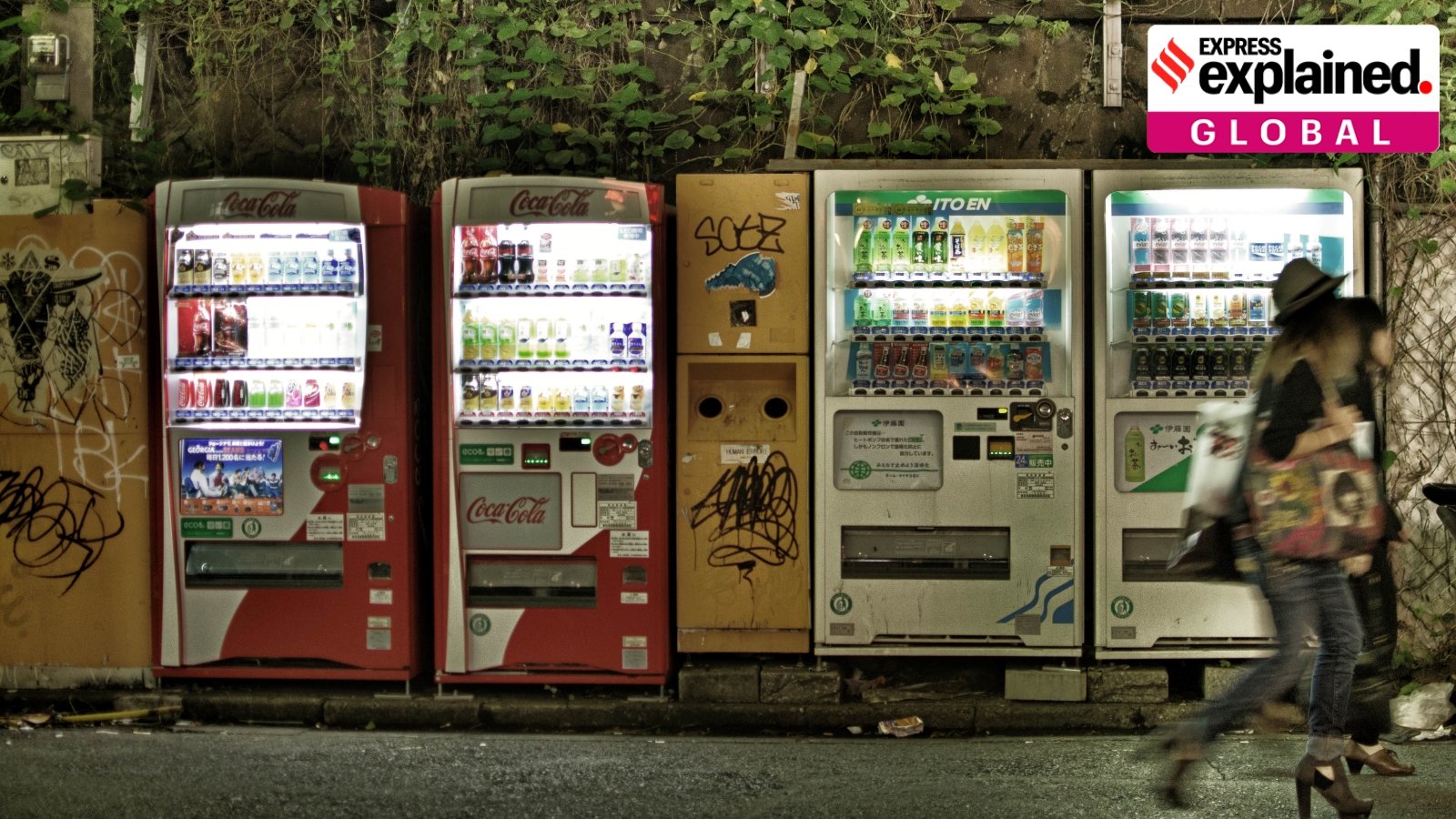
HOW JAPAN IS SET TO MAKE MILLIONS OF VENDING MACHINES OBSOLETE
A line of vending machines in Shibuya, Japan. (Wikimedia Commons)
Millions of vending machines across Japan are set to become obsolete, with the country introducing new yen notes on July 3. Here is what you need to know.
Vending machine paradise
Vending machines are ubiquitous in Japan, a part of people’s daily lives. According to Nikkei Compass, a database for industry reports, there are 4.1 million vending machines in Japan. That’s about one for every 31 people, the most vending machines per capita in the world.
And these machines sell everything under the sun, from beverages and food, to clothing and toys. They can be found in every conceivable location, including train stations, offices, street corners, and even restaurants.
Small businesses, particularly eateries such as ramen shops use them to process orders. This system helps reduce labour in a country in which the workforce is fast shrinking.
Cash is king
Japan is one of the slowest adopters of digital payments.
According to Japan’s Ministry of Economy, Trade and Industry, cashless payments totalled only 39% of consumption in the country, well below most developed economies in the West, and even its closest neighbour, South Korea, where this share is over 85%.
There are a number of reasons for Japanese people’s affinity to paper currency. A Statista survey in 2020 found concerns regarding personal information leakage while using cashless methods of payment, fear of credit cards being stolen and misused, and the concern about overspending on credit cards, as key reasons.
Experts say that at the heart of things is a cultural affinity to cash, which remains unshaken despite the proliferation of digital modes of payment. While some vending machines in Japan do accept cashless payments, a huge number do not.
Costly currency change
This is why the issuance of new notes has put many in a pickle. Many of Japan’s existing vending machines will now become obsolete, either having to be replaced completely or requiring serious — and expensive — upgrades.
A sample of a new 10,000 yen banknote is displayed under a light to demonstrate how it differs from a forgery at the currency museum of the Bank of Japan. (REUTERS/Issei Kato)
According to a report by Fortune magazine, only 30% of machines can currently accept the country’s new notes. In fact, many machines cannot even handle the new 500 yen coins introduced in 2021. According to a report by The New York Times, only about 70% of drink vending machines accepted new 500 yen coins, issued in 2021, in the summer of 2023.
The cost of upgrading these machines will have to be borne by businesses themselves. The NYT reported that purchasing new machines can cost upto $19,000, a tall ask for small businesses already grappling with high inflation and operating costs.
This is not the first time that Japan has faced this issue. In 2004, the last time Japan’s bank notes were updated, the demand for new, compatible vending machines was so high that vending machine manufacturers like Glory saw their net income triple.
Behind Japan’s decision
Yet, policymakers say that this was a necessary step to prevent counterfeiting. The new notes have advanced security features like three-dimensional portraits of the founders of financial and female education institutions in the country.
Another rationale behind the decision is to facilitate a cash-infusion into the economy. The introduction of the banknotes is expected to have an impact of more than 1.5 trillion yen on the nation’s economy, pushing up GDP by around a quarter percentage point, Takahide Kiuchi, executive economist at Nomura Research Institute and an ex-Bank of Japan board member, told Fortune.
““I hope they [the new notes] will be liked by Japanese people while adding a spark to the economy,” Prime Minister Fumio Kishida said during a ceremony at the Bank of Japan on July 3.
Lastly, experts believe that the decision could also spark a further adoption of cashless payments, and is a part of the government’s push towards a cashless economy.
The writer is an intern with The Indian Express
For the latest news from across India, Political updates, Explainers, Sports News, Opinion, Entertainment Updates and more Top News, visit Indian Express. Subscribe to our award-winning Newsletter Download our App here Android & iOS
2024-07-04T11:08:08Z dg43tfdfdgfd